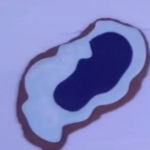Chest pain can include any kind of discomfort or pain that takes place between the upper belly areas extending above to the lower neck region. This kind of pain is not age restricted and can occur to individuals belonging to any age group. Throbbing chest pain is commonly referred to as chest pressure, chest tightness, fullness in chest or burning feeling in the chest. Chest pain can also be dull, sharp, crushing, throbbing, cramping, achy or tearing.
Chest pain ranges from mild to serious ailments resulting in life-threatening conditions. Serious chest pain is the commonest symptom of heart attack. Chest pain is generally associated with heart attacks, and/or other kinds of cardiovascular diseases. However, chest pain is not restricted to only cardiovascular related disorders it can be caused by other kinds of conditions, disorders, and diseases.
As mentioned earlier, chest pain can occur due to a comparatively mild to moderate conditions, which are comparatively easier to treat, like drinking excess coffee, hyperventilation, anxiety attack, or occasional indigestion. However, chest pain can be the symptoms of more fatal conditions of gastrointestinal tract like acid reflux and serious respiratory conditions like acute bronchitis, bronchiolitis, pneumothorax, asthma, lung cancer, pulmonary edema, pulmonary embolism, and chronic obstructive pulmonary disorder. Nevertheless, these reasons do not cause chest pain in children. In children, congenital heart conditions, pneumonia, birth defect, and pleuritis can cause chest pain instead of heart attack.
On the basis of the cause of chest pain, the duration of the chest pain varies. Sometimes they last for a short period and disappear quickly like those caused by hyperventilation, or when inhaling very cold air. On the other hand, sharp chest pain which occurs as a sudden and severe episode might be because of pulmonary embolism or heart attack. Chronic and continuous chest pain can occur because of lung cancer or (COPD) chronic obstructive pulmonary disease.

What are the symptoms of severe chest pain?
It is impossible to diagnose the underlying cause of chest pain, be it a mild one or a severe one. Even though one can somewhat cure mild chest pain using home remedies, in case of severe chest pain, the person suffering from it needs to be immediately provided with medical care. If someone is suffering from excruciating chest pain or is having a crushing sensation in their chest; if the person is having pain that radiates from the chest to the shoulder blades, left arm, jaw, or the person exhibits shortness of breath or sweating along with chest pain; in all of these cases, the individual needs to be immediately given proper medical care as these are all symptoms of chest pain arising from severe and life-threatening diseases or disorders.
Additionally, sudden chest pain accompanied by shortness of breath experienced after a prolonged period of inactivity, like after long period of bed rest; might be an indicator of pulmonary embolism and this is a severe, life-threatening emergency situation.
What are the causes of chest pain?
Chest pain can be due to a number of reasons varying from mild to severe ones like diseases, disorders, and other similar conditions. Chest pain might also result from infarction, infection, malignancy, trauma, and various other abnormal processes. While many chest pain incidences can arise due to heart problems, it may also occur because of respiratory problems, anxiety disorders, digestion, or even pulled muscles or tendons.
Some of the life-threatening and severe cardiovascular causes of throbbing pain in chest involves malfunctioning or defects in structures surrounding heart. These causes include aortic dissection, cardiac arrhythmias, congenital cardiac anomalies, birth defects like coarctation of aorta as well as aortic valve stenosis.
Other causes include congestive heart failure, coronary heart failure, coronary artery disease that includes coronary artery spasm, endocarditis, and pericarditis. Serious lung related causes that can lead to throbbing chest pain include asthma, bronchitis, pleurisy, pneumonia, pulmonary edema, pulmonary hypertension, and pneumothorax. Digestive system related life-threatening causes of throbbing pain in chest include achalasia or disorder of esophagus, heartburn, esophageal spasm, gallbladder conditions including cholecystitis, gastritis, hiatal hernia, peptic ulcer, and pancreatitis.
Potential complications related to Chest pain
As explained earlier, it is difficult to identify the underlying cause of chest pain. Only through identification of symptoms is it possible to categorize the seriousness of chest pain. Hence, it is important to understand the symptoms of chest pain and consult medical professionals to avoid unwanted complications that may arise.
Complication of untreated or improperly treated chest pain varies depending upon underlying disease. However, any kind of throbbing pain in chest be it mild or serious should be taken to respective health care professional’s notice as untreated chest pain can have serious health complications like cardiac arrest, low oxygen levels, acidosis and high carbon-dioxide levels, sepsis, respiratory failure, respiratory arrest, and shock.


